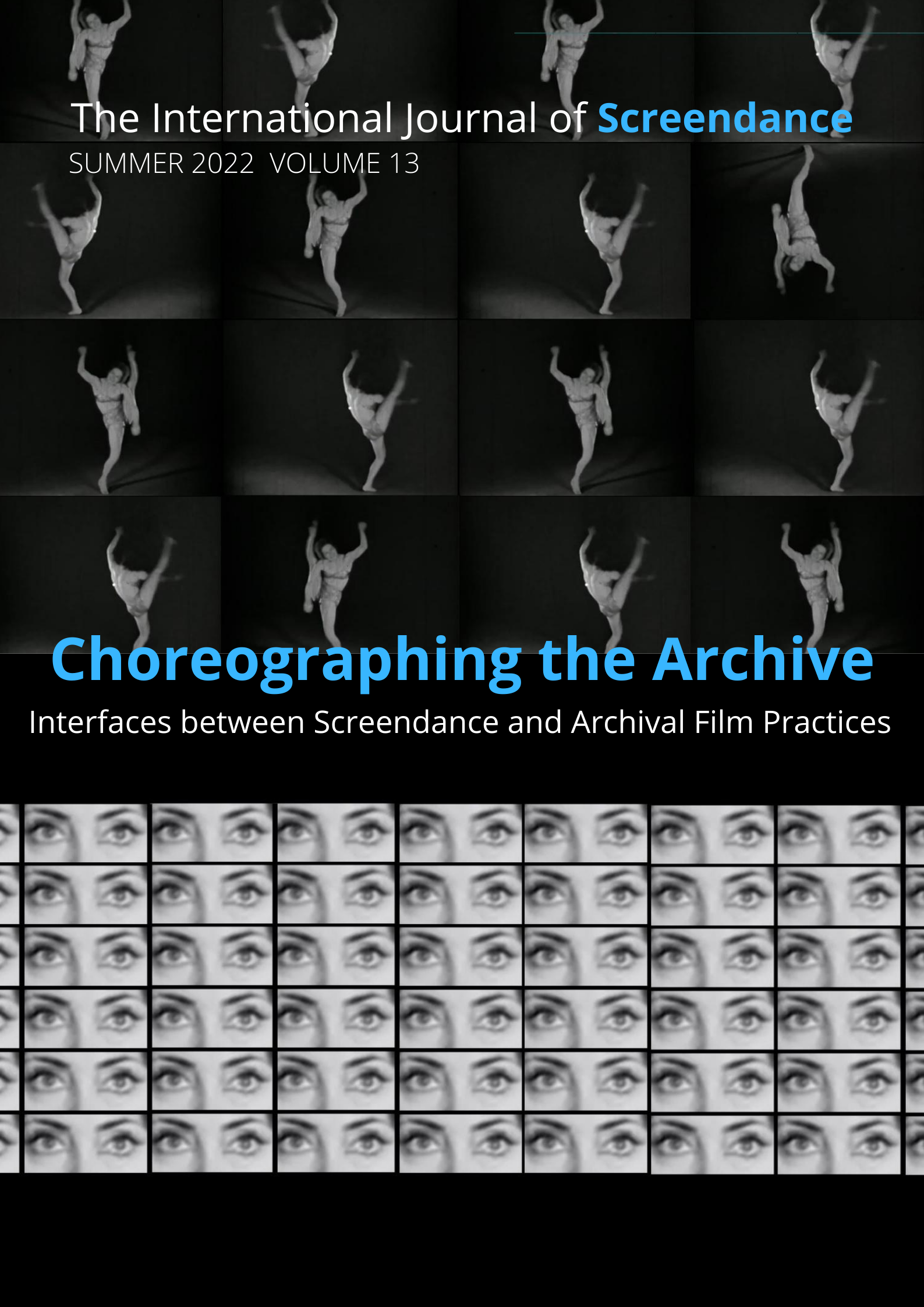Sense Of Meanings: A Deconstructive Lens On Time, Space And Opposites In The Film The Host (2016) Directed By Miranda Pennell
DOI:
https://doi.org/10.18061/ijsd.v13i1.8656Keywords:
deconstruction, observation, archive, screendance, absence, presence, temporal and spatial shiftsAbstract
Deconstruction has been used in theater practice and performance art since the 1960s -1970s as a strategy to guide viewers to observation of things and people in and around the performance practice, questioning meaning and its making. This paper proposes that deconstruction is relevant and of value to screendance practitioners for the way in which it supports the challenging of dominant narratives, and invites us to notice and question fixed truths, including our own. For the purpose of my argument I will focus on a film, The Host (2016) by Miranda Pennell, a film made from archive images, which are deconstructed by the filmmaker as part of her narrative making. Among the numerous studies and contributions Derrida has made within philosophical debate, I will focus solely on his theory of deconstruction of text and meaning to contextualize the deconstructive approach adopted by Miranda Pennell in her film The Host (2016). Pennell’s approach includes her research into the narrative of the film. This inclusion gives the film a performative attribute, which I argue to be a point for considering the film a work of screendance.
The combination of the archive material and Pennell’s approach to it, allows her to shift between various possible truths that cohabit within a broad spectrum of time and space. In the words of Trinh T. Minh-ha in “The Totalizing Quest of Meaning” from Theorizing Documentary edited by Michael Renov:
To compose is not always synonymous with ordering to persuade, and to give the filmed document another sense, another meaning, it
is not necessarily to distort it. If life’s paradoxes and complexities are not to be suppressed, the question of degrees and nuances is
incessantly crucial.
Pennell’s deconstructive approach favors the consideration of such “degrees and nuances” when presenting her narrative, constructing meaning that is complex in its subtleties and implications by pairing opposite concepts and looking at their relation and their relation to herself and others. In The Host (2016) this pairing is consistent throughout the film, openly inviting viewers to question what is being shown.
Through a close analysis of The Host, contextualized both with reference to Derrida and to the wider field of screendance, I conclude that a deconstructive approach offers filmmakers and screendance practitioners interested in reinterpreting archive materials through film editing the opportunity to expand choreography to another discipline. As a screendance practitioner, I find that this opens up a world of narrative possibilities, and this is reason enough to shine more light on works that do so.
Downloads
Published
How to Cite
Issue
Section
License
Copyright (c) 2022 Luisa Lazzaro

This work is licensed under a Creative Commons Attribution 4.0 International License.

